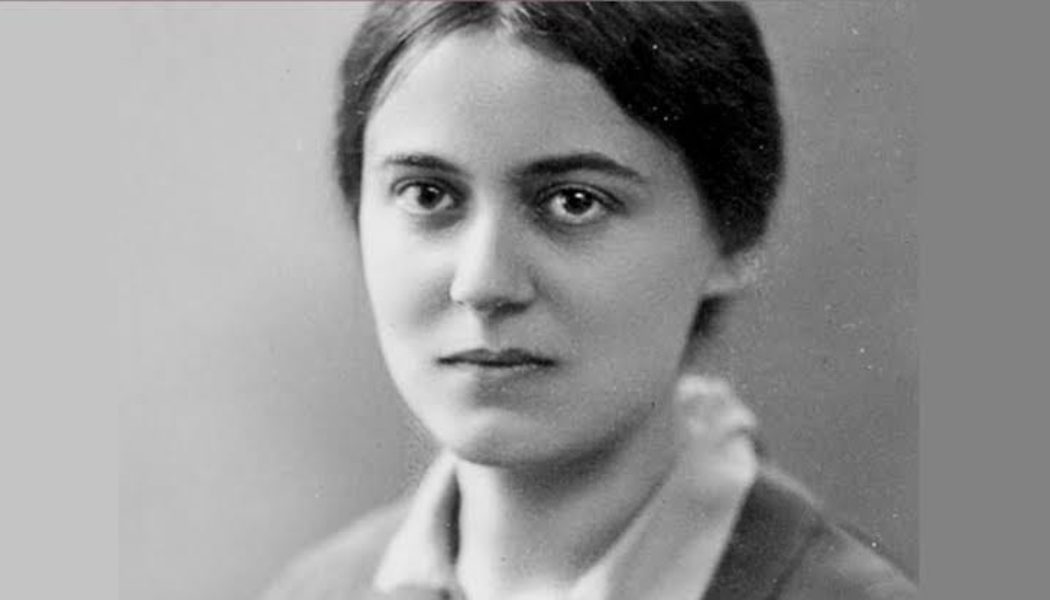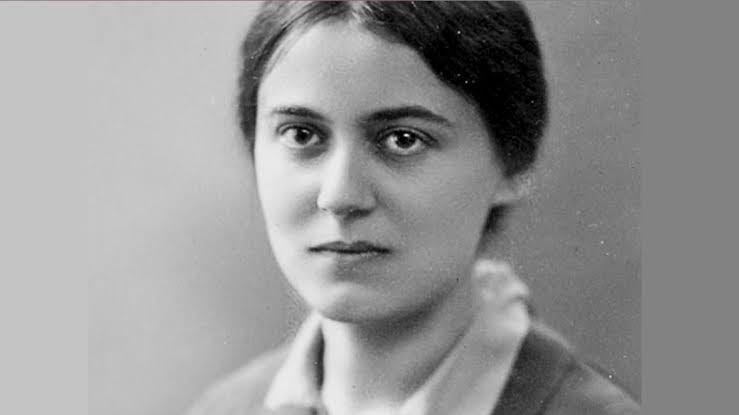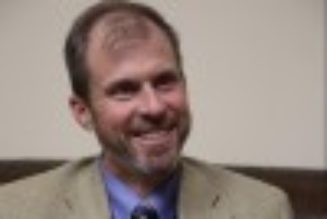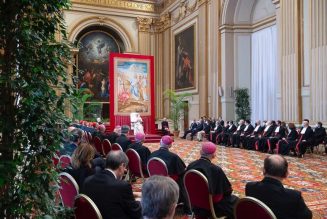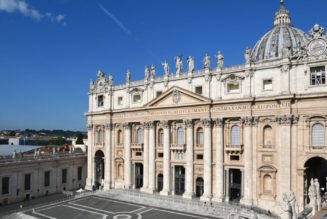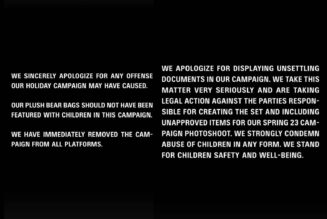Pillar subscribers can listen to Ed read this Pillar Post here: The Pillar TL;DR
Happy Friday friends,
And a very happy feast of St. Teresa Benedicta of the Cross, or Edith Stein, if you prefer, to you all.
Stein was a towering intellectual and moral figure living in an age that yearned for such people. As an Italian I know once explained to me with great condescension: “She lived through two world wars, you know, the first and the second; she died during the second.”
Well, indeed.
But I also want to draw your attention today to Edith’s niece, Eva, who was born with an intellectual disability in Germany in 1915. Growing up in that place, at that time, with that kind of disability, and being a young Jewish woman, I think you can imagine the fate she suffered.
Although her parents, Martha and Arno, were committed to raising their daughter in the same way as her siblings, she struggled in school. As the situation in Germany deteriorated throughout the 1930s, her mother — an American citizen — fled the country, eventually followed by her father when Eva was 23, leaving her in the care of a boarding house proprietor.
Eva’s parents tried for years to secure her passage to America to join her mother, but she was repeatedly denied permission to travel by the U.S. government, on the grounds that she was deemed “unemployable” and therefore undesirable. As a result, she ended up in a concentration camp, where she died in 1942.
A sobering story, to be sure.
It is well worth your time.
Here’s the news.
The News
The dictatorship of Daniel Ortega has initiated a new crackdown against the Catholic Church in Nicaragua, with the arrest of at least 12 priests across the country.
Local sources have since told The Pillar that the clerics have already been sent into exile.
This is very much a developing story in a place where the Church is under direct persecution.
—
Caritas Luxembourg likely lost around 61 million euros ($67 million) due to “fake president fraud,” the public prosecutor’s office said Tuesday.
Local media have reported that the 61 million euros were transferred from Caritas Luxembourg to Spanish accounts in installments of less than 500,000 euros between February and July this year.
The transfers reportedly required the electronic signatures of the financial director and two other members of the management team.
—
Pope Francis will embark next month on the longest trip of his pontificate — and perhaps also one of his more perilous.
The 87-year-old pope’s more than 20,000-mile trip across two continents is replete with security challenges, including terrorism, tribal violence, and even clashes between rival martial arts groups, Luke reported this week.
So what are the risks, and what is the plan? Read the whole thing here.
—
After World War II, the Dutch province of the Dominican order had so many brothers it was shipping them off as missionaries. By 1990 they had closed their novitiate and study house for lack of new members.
Edgar Beltrán met with Ansinger in his Rotterdam friary to talk about the Dominicans’ contemporary history in the Netherlands, Gregorian chant, Thomism, Edward Schillebeeckx, and evangelization in a secularized world.
—
Poland’s most popular shrine could receive a record number of pilgrims in 2024, part of an historic swell in pilgrim numbers at shrines across Europe.
But pilgrim numbers have bounced back since 2020, rising to 2.5 million in 2022 and 3.6 million in 2023.
This is a pretty straightforward good news story, with some seriously interesting background on a unique place.
—
September is traditionally a month when the pope creates new cardinals, with news of new papal nominations due out about now.
While Pope Francis hasn’t made any announcements, in an analysis this week I took a look at the voting numbers in the college and it seems like the pope is about due for a new batch.
Even though he named 18 new voting cardinals to the college this time last year, 15 others have aged out of a future conclave since then, with 18 more turning 80 years old by the end of next year.
That would leave just 106 voting age cardinals, more than a dozen shy of the 120 envisaged by canon law as the optimum number.
But if Francis does name new cardinals, who might they be, and from where, and what would this do to the geographic balance of the conclave?
You can read the whole analysis here.
For more than 25 years, Logos has served as an interdisciplinary meeting point for scholars and readers to engage with the beauty, truth, and vitality of Christianity as it is rooted in and shaped by Catholicism. Published by the Center for Catholic Studies, University of St. Thomas (MN).
Max’s trophy
Many of you have kindly written and messaged and called to ask after JD’s son Max, whom JD wrote about on Tuesday and who has been seriously — with JD’s permission, I will be honest with you here — dangerously unwell.
JD asked me to let you know he and his family are deeply grateful for all of the prayers and Mass intentions offered on Max’s behalf.
Max was admitted to hospital Tuesday night. As of time of writing, he is still there, though the family Flynn hope to be able to bring him home soon.
Mr. and Mrs. Flynn have spent the week with Max during his hospitalization, with all the emotional tolls that come along with watching their son suffer and fight for his breath, while looking after their other children, too.
So it is for that reason you haven’t seen JD’s byline around the office since Tuesday, he wanted me to explain. Though I know you understand.
Though your understanding and mine — and our absolute insistence that there is nowhere else he could or should possibly be — didn’t stop JD calling me last night to apologize for “being in the wind,” as he put it, these last few days.
We give each other, and ourselves, a fair bit of grief for having an unhealthy relationship with our work. And, by anyone’s estimation, there isn’t an emotional ounce worth sparing to worry about what is going on at the office while your son’s in the hospital.
It’s not all just disordered attachment to our day labors, though.
We are incredibly fortunate that we have jobs in which we are, in a practical sense, answerable to no one but our subscribers, who are collectively the best and most understanding boss you could possibly wish for. But, and I think with very few exceptions this is a near-universal experience, anxiety about work is always lurking as an amplifier in times of distress.
I’ve myself experienced, though thankfully not in the context of a sick child, the impulse to throw myself into work when facing a crisis. The simple, and I think wrong, read of this is to dismiss it as the urge to escape. In my case, it’s a real panic reflex to worry I might suddenly lose the means to provide whatever resources are needed — material, medical, financial — to support my family in an already precarious moment.
Of course, just working harder doesn’t fix anything. If it could, I wouldn’t have to live in a perpetual cold sweat about the annual attrition rate among our subscribers. And if you work for the kind of people who would expect you to be there at all when your kid is sick, they aren’t going to be impressed if you go all out for the next PowerPoint team talk.
But the anxiety is real, either way. In the end, it is a question of faith — not in your employer, but in Providence. Because, as I have to remind myself quite often, I can no more guarantee this website (or any other job) will provide for my family than a medieval peasant farmer could control the weather.
Accepting that every hardship, every moment of precariousness, comes from Him and with His love no less than each blessing or time of abundance, is a hard rope to hold onto. But it is all wrapped up in the foundational contradiction of our faith, which we hail as the “glorious cross.”
Reaching for the Lord in times of suffering is often the most counter-intuitive human instinct, but it is also the most profound.
The word trophy, which we use to mean a token of moments of victory, has a more important root. Coming from the Greek τροπή, a turning point, it really means the moment when the run of battle changes, and the tide suddenly floods from defeat to victory.
For the Christian, the cross is the existential turning point, when death is conquered by life, sin consumed by salvation.
Each of the crosses we bear become trophies, monuments to when Christ stood with us, turning fear into faith. But these moments always come in the middle of a battle.
We’ve all been praying for Max and his family in their battle this week, with confidence that Christ will plant his sign of victory in their midst.
Bob’s bear
Experience has taught me that in assessing a presidential candidate it is important to try to get a sense of the man (or woman) and who he (or she) is away from the office or campaign trail.
What do they do for fun? I think such things tell you a lot about a person.
For example, when Donald Trump and Joe Biden bickered without embarrassment about their golf games, my toes curled so hard I think I broke a metatarsal.
I’m not saying all golfers are somehow deficient in character, per se. But they are surely the most tedious demographic in America. And as a group they absolutely over-index on a lot of red flags: gold watches, fragile egos, Protestantism, petty vanity over low stakes, “athleisure wear,” and so on.
Kamala Harris, so far as I am aware, doesn’t have any hobbies at all. At least, she doesn’t talk about anything she does just for fun — unless you count jailing young men on minor marijuana charges.
It was in this desert of political personalities that I, like I suspect most of you, encountered this week Robert Fitzgerald Kennedy Jr.’s self-published account of one hell of a day out, by anyone’s metric.
I cannot imagine any Americans reading this newsletter are unfamiliar with the details by now, but for any overseas subscribers who don’t know what I am talking about: RFK Jr. is the son and namesake of the assassinated attorney general and presidential candidate, and nephew to the president of the same surname and fate.
RFK Jr. is running for president as a third-party candidate, currently polling somewhere between 5-8%, depending on who you listen to. He is, by his own account, a “maverick.” Some call him a crank and a conspiracy theorist; others call him less charitable names.
As a potential spoiler in the presidential poll — he could end up taking a decisive margin of the vote from either candidate in some swing states — he’s a figure of universal media interest and partisan animus.
That being the case, and given his storied family history, he’s the subject of numerous media profiles, including this one from New Yorker magazine which called to fact-check the now famous “bear incident,” prompting Kennedy to release his own narrative before it could be “spun” against him.
Frankly, I do not see how this story could possibly play badly for him.
On his way to meet some friends for a day’s falconry in 2014, he saw a dead bear on the side of the road, stopped, and loaded it in the back of his car with a view to skinning it and harvesting the meat. But after a hard day’s hawking, he and the boys drove downtown for dinner, got a little lit, and decided to use the bear carcass to stage a mock bicycle accident in Central Park.
The scene was then covered by the city’s newspapers, over some days, as a great mystery.
As JD observed, those Kennedys do know how to stage an accident.
Some people have suggested that RFK’s presence in the presidential race is evidence we are no longer a serious country. But I would suggest the bear incident shows him to be a more interesting man than I would have otherwise credited him for being — certainly more worthy of my consideration than your average golfer. For a start, he prefers falconry.
He has also shown a working knowledge of NY state game law, and that he is comfortable with ursine butchery. He apparently enjoys long dinners at pricey steak houses, but he is open to eating roadkill. Though he’s also previously gone on record as having contracted a parasitic brain worm, too, so we could have guessed that last one.
Most importantly, he pranked the entirety of New York City, and then kept quiet about it for a full decade.
If all this doesn’t qualify him for the presidency, we ought to at least have some kind of civilian medal to honor such a man.
It should be a point of shame for us that this story hasn’t sparked national competition among undergraduates to one-up Kennedy by staging the most elaborate public tableau with the most exotic animal.
If America was half the country we pretend it to be, young men would be raiding wildlife sanctuaries and WalMarts across the East Coast, and Central Park would look like a hallucinogenic battlefield — strewn with tigers and pogo sticks, moose and unicycles.
Given the otherwise wrathful tone of our public discourse just now, maybe we all need a night out on the tiles and some old-fashioned japery.
Or maybe it’s better we don’t.
See you next week,
Ed. Condon
Editor
The Pillar
For more than 25 years, Logos has served as an interdisciplinary meeting point for scholars and readers to engage with the beauty, truth, and vitality of Christianity as it is rooted in and shaped by Catholicism. Published by the Center for Catholic Studies, University of St. Thomas (MN).
Comments 35
Services Marketplace – Listings, Bookings & Reviews
